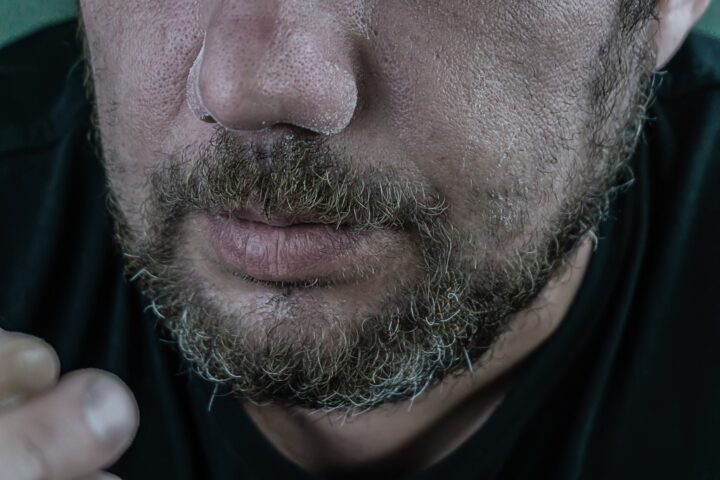When people think of addiction, they think of substances, the bottle, the pill, the needle. But not all addictions come in liquid or powder form. Some wear the mask of discipline, kindness, or success. Some are invisible, even applauded.
Control. Perfectionism. People-pleasing.
They don’t destroy the body the way alcohol or drugs do, but they eat away at something deeper, the soul. These are the silent addictions, the ones that thrive in people who seem like they have it all together. They don’t land you in rehab, but they can leave you just as emotionally bankrupt.
These addictions are harder to spot because they’re rewarded by society. Being organised, helpful, and ambitious are seen as virtues, until you realise that underneath, they’re driven by the same force as any addiction: fear.
Control, The Illusion of Safety
Control addicts are experts at holding it all together. They manage, predict, and plan every detail of their world. On the outside, it looks like leadership. On the inside, it’s terror. Control isn’t about power, it’s about protection. It’s born from the belief that if you can keep everything just right, nothing bad will happen. It’s the nervous system’s way of saying, “If I can control everything, I won’t get hurt again.”
But control is exhausting. It keeps you hypervigilant, scanning for anything that might fall apart, because the thought of uncertainty feels like death. When something inevitably goes wrong, the anxiety spikes, and you double down. You try harder, plan tighter, grip stronger.
The cruel irony? The more you try to control life, the smaller your life becomes.
Control feels like safety, but it’s actually prison.
Perfectionism, The Addiction to Approval
Perfectionists don’t aim high because they love excellence, they aim high because they’re terrified of failure. Every mistake feels like evidence that they’re unworthy. Every success is a brief relief, quickly replaced by the next impossible standard.
Perfectionism is a socially acceptable addiction. It’s praised in schools, workplaces, and families. “She’s such a perfectionist,” people say admiringly, not realising the quiet panic that drives it.
Perfectionists live with an internal voice that never shuts up: Do more. Be better. Don’t fail. Don’t let them see you struggle.
It’s not ambition. It’s survival.
Like any addiction, it delivers a temporary high, the praise, the recognition, the approval. But it never lasts. The bar keeps moving higher, the standards grow sharper, and the exhaustion deepens.
Perfectionism is the addiction that promises control and delivers self-loathing.
People-Pleasing, The Disguised Dependence
Then there’s people-pleasing, the addiction that hides behind kindness. People-pleasers aren’t just nice; they’re addicted to being needed. Their self-worth depends on other people’s comfort. If everyone around them is okay, they feel safe. If someone is upset or disappointed, they spiral.
They say yes when they mean no. They apologise for things they didn’t do. They overextend, overcommit, and overexplain. On the surface, they look selfless. But inside, they’re running from rejection. People-pleasing isn’t generosity, it’s self-erasure. It’s an unconscious deal, I’ll sacrifice myself so you won’t leave me.
And like all addictions, it never pays off. The more you give, the more you disappear.
Fear and Control
Control, perfectionism, and people-pleasing all come from the same root, fear. Fear of rejection. Fear of failure. Fear of being powerless. They’re the coping mechanisms of people who once felt unsafe. Maybe it was childhood chaos, emotional neglect, or simply never feeling good enough. Somewhere along the way, they learned: If I can manage everything, or everyone, I’ll survive.
But survival isn’t living. These silent addictions turn life into a constant performance. Every move is calculated, every emotion censored, every flaw hidden. The goal isn’t happiness, it’s protection.
And protection always comes at a cost.
When Control Becomes the Drug
For control addicts, unpredictability feels like withdrawal. They can’t relax until everything is in order. They micromanage work, relationships, and even recovery. But the world doesn’t cooperate with control. People change, plans fail, life surprises you. And every time something slips through your fingers, it feels like failure.
That’s why many control addicts burn out, physically, emotionally, spiritually. They spend years trying to keep the plates spinning, not realising that the illusion of control is the very thing holding them hostage.
True control isn’t about fixing life, it’s about learning to trust it.
The Burnout Behind Perfection
Perfectionists don’t break suddenly. They crumble quietly. It starts with anxiety, insomnia, resentment, and fatigue. Then comes the depression, the emptiness that follows years of chasing an unreachable goal. Some turn to alcohol or medication to silence the voice in their heads. Others shut down completely, unable to start anything for fear it won’t be perfect.
Perfectionism and addiction often dance together. Both are driven by avoidance, one avoids imperfection, the other avoids emotion. Breaking free means learning that worth isn’t earned through achievement. It’s inherent. You don’t need to do more to be enough.
The Hidden Resentment of People-Pleasing
People-pleasers rarely explode, they implode. They give and give until the quiet resentment becomes unbearable. They start to feel used, invisible, and angry, but they don’t know how to stop. Saying no feels selfish. Taking space feels dangerous.
Eventually, they burn out or lash out. Relationships suffer. The very people they tried to keep close start pulling away. That’s the heartbreaking part, people-pleasing destroys the connection it’s meant to preserve.
Recovery begins when you realise that love built on compliance isn’t love at all. It’s fear wearing a smile.
How These Addictions Hide in Recovery
Here’s the cruel twist, control, perfectionism, and people-pleasing often sneak into recovery itself. You stop drinking, but now you’re obsessed with doing recovery “right.” You manage your healing like a project, perfect attendance at meetings, rigid routines, strict diets, endless self-improvement.
It looks like commitment, but it’s the same old addiction in disguise. You’ve just swapped the substance for the illusion of control.
True recovery isn’t about managing your healing, it’s about surrendering to it. It’s messy, emotional, imperfect. It’s about learning to be human again, not flawless.
The Emotional Cost of Staying “Fine”
The silent addict’s favourite lie. They say it when they’re falling apart, when they’re exhausted, when they’re lonely. They believe that if they keep it together long enough, the storm will pass. But silence doesn’t save you, it isolates you.
Behind every “I’m fine” is a person terrified of burdening others. They grew up believing emotions were dangerous, that asking for help was weakness.
But no one heals by staying fine. Healing starts with honesty, admitting that you’re tired, that you’re scared, that you can’t do it all.
Vulnerability is the only antidote to control.
The Withdrawals of Letting Go
Letting go of these silent addictions feels like detox. The body rebels. The mind panics. You feel exposed, anxious, raw. When a people-pleaser says no for the first time, it feels like betrayal. When a perfectionist leaves something unfinished, it feels like failure. When a control addict surrenders to uncertainty, it feels like freefall.
That discomfort is healing. It’s your nervous system learning that imperfection isn’t fatal, it’s freedom. You don’t have to control the world to be safe. You don’t have to please everyone to be loved. You don’t have to be perfect to be worthy.
That’s recovery.
Learning New Ways to Cope
Breaking free from silent addictions doesn’t mean abandoning your strengths, it means unhooking them from fear.
- For control addicts: Practice flexibility. Let small things go. Learn to say “I don’t know” without shame.
- For perfectionists: Aim for “good enough.” Celebrate progress, not perfection.
- For people-pleasers: Start with one honest “no.” Notice that the world doesn’t collapse.
Therapy, group work, and mindfulness all help retrain the nervous system. The goal isn’t to stop caring, it’s to stop caring too much about the wrong things.
When you stop performing for safety, you make room for authenticity, and that’s where peace lives.
Redefining Recovery
Recovery isn’t just for people addicted to substances. It’s for anyone addicted to control, certainty, or approval. You don’t have to hit rock bottom to need healing. You just have to notice when your coping mechanisms start costing you your joy. Real recovery isn’t about managing life, it’s about experiencing it. The laughter, the mess, the uncertainty. It’s about finding comfort in not being in control.
At We Do Recover, we’ve seen how often the loud addictions start with the quiet ones. When people learn to release their grip on perfection and people-pleasing, they finally make space for the one thing addiction can’t survive, peace.
Because peace doesn’t come from control. It comes from letting go of everything that was never yours to carry.




